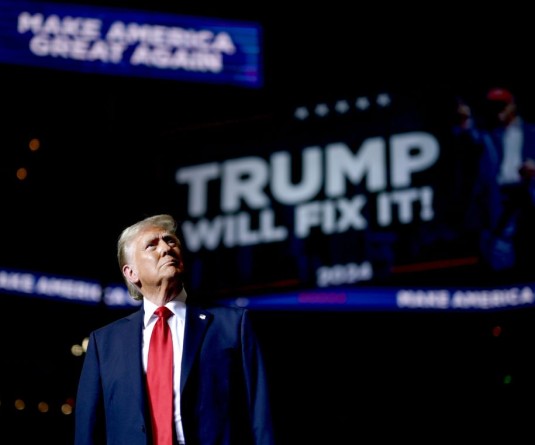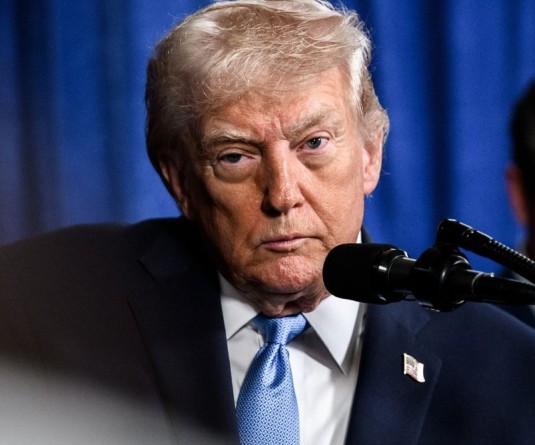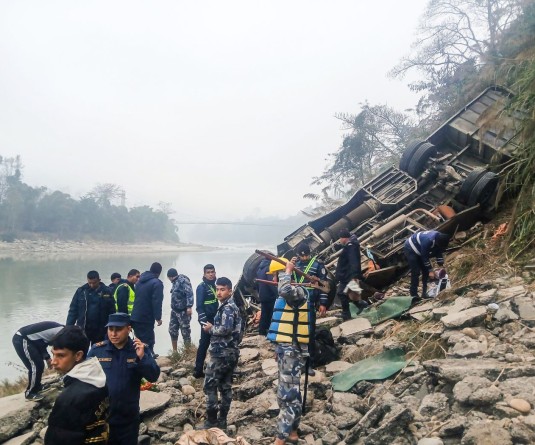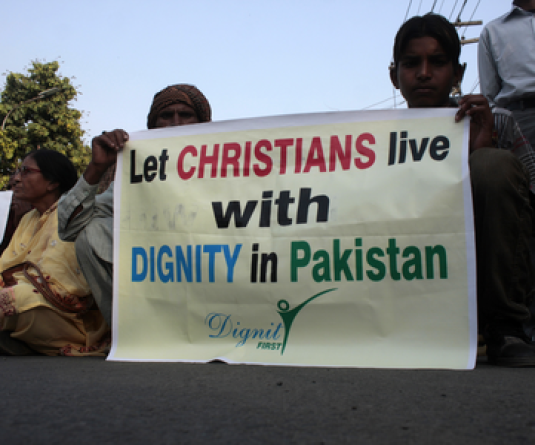
CARACAS, Venezuela, July 3 (AP): Opponents of Venezuelan President Hugo Chavez face a new political playing field filled with potential pitfalls now that their nemesis has announced he is being treated for cancer.
Venezuela's loosely knit coalition of opposition factions insists it is sticking with plans to stand behind a single candidate in next year's presidential election, yet the only glue that has held them together for years has been animosity toward Chavez.
If cancer were to force Chavez from the race, long-standing divisions could widen, hurting the opposition's chances for victory. "The situation poses a severe test for the opposition. They may sense an opportunity but there are risks of fracturing," said Michael Shifter, president of the Inter-American Dialogue in Washington. "Some figures might convince themselves that remaining united is not necessary, and they can afford to stake out different positions." "Any infighting could be very debilitating," he added.
Most opposition politicians reject the slightest suggestion that the anti-Chavez movement could split if the president were to stop playing an active role in politics. Several months before Chavez became ill, the diverse collection of opposition parties said it will hold a presidential primary in February to select a single presidential candidate. But under these new circumstances, some of the president's rivals may be "thinking that the barrier to participating in the elections is lowered," said Carlos Blanco, professor of Latin American affairs at Boston University. "That can create a situation in which more candidates would like to run for the primaries," thereby splintering the opposition, Blanco said.
Some of Chavez's adversaries acknowledge that personal ambitions might get in the way. "Anything is possible within the opposition," said Oswaldo Alvarez Paz, one of several presidential hopefuls. "We must all relinquish any type of personal ambition, of party interests and follow the path that has been followed so far: the path toward the primary," he said.
Opposition congressman Edgar Zambrano raised concerns that some Chavez opponents have begun maneuvering to advance their own political aspirations, thereby undermining the coalition's efforts to maintain unity. Without singling out specific politicians, Zambrano said some government adversaries are "creating conflicts and contempt for the coalition."
Some Chavez opponents have suggested the opposition primary should be held earlier, preferably in December, for the coalition to adapt to changing circumstances driven by Chavez's illness and give the winner more time to mount a more effective campaign. "We cannot rule out changing our agenda if that's what the circumstances call for," said Caracas mayor Antonio Ledezma, who plans to run in the primary.
For the moment, the opposition is standing firmly united on one thing, at least: its criticism of how Chavez's government has handled his illness. They claim officials have been far too secretive and that Vice President Elias Jaua should officially take over the president's duties until he returns from Cuba, where he is recovering after surgery to remove a cancerous tumor from his pelvis. But Jaua said that wouldn't happen; that the president is perfectly capable of running the country from Cuba. Chavez is in the process of "getting better to keep on leading us," Jaua said.
During a televised interview broadcast on Saturday, Foreign Minister Nicolas Maduro said that Venezuelan and Cuban doctors removed a cancerous tumor from Chavez's pelvic region and conducted tests that showed the president's vital organs are healthy. "They were able to completely remove the tumor," Maduro said. "They examined all of his organs and they are in perfect condition."
Venezuela's state-run AVN news agency released photographs of Chavez that showed the president walking together with Maduro and two of his daughters, Rosa Virginia and Maria Gabriela. Chavez, who wore a sport jacket and sneakers, appeared pale and thin. The photographs were taken on July 1, according to AVN. AVN reported the president's stroll along a concrete pathway surrounded by grass and palm trees lasted about 10 minutes. It quoted Maduro as saying Chavez "is in a new phase of recuperation, doing his exercises."
Venezuela's loosely knit coalition of opposition factions insists it is sticking with plans to stand behind a single candidate in next year's presidential election, yet the only glue that has held them together for years has been animosity toward Chavez.
If cancer were to force Chavez from the race, long-standing divisions could widen, hurting the opposition's chances for victory. "The situation poses a severe test for the opposition. They may sense an opportunity but there are risks of fracturing," said Michael Shifter, president of the Inter-American Dialogue in Washington. "Some figures might convince themselves that remaining united is not necessary, and they can afford to stake out different positions." "Any infighting could be very debilitating," he added.
Most opposition politicians reject the slightest suggestion that the anti-Chavez movement could split if the president were to stop playing an active role in politics. Several months before Chavez became ill, the diverse collection of opposition parties said it will hold a presidential primary in February to select a single presidential candidate. But under these new circumstances, some of the president's rivals may be "thinking that the barrier to participating in the elections is lowered," said Carlos Blanco, professor of Latin American affairs at Boston University. "That can create a situation in which more candidates would like to run for the primaries," thereby splintering the opposition, Blanco said.
Some of Chavez's adversaries acknowledge that personal ambitions might get in the way. "Anything is possible within the opposition," said Oswaldo Alvarez Paz, one of several presidential hopefuls. "We must all relinquish any type of personal ambition, of party interests and follow the path that has been followed so far: the path toward the primary," he said.
Opposition congressman Edgar Zambrano raised concerns that some Chavez opponents have begun maneuvering to advance their own political aspirations, thereby undermining the coalition's efforts to maintain unity. Without singling out specific politicians, Zambrano said some government adversaries are "creating conflicts and contempt for the coalition."
Some Chavez opponents have suggested the opposition primary should be held earlier, preferably in December, for the coalition to adapt to changing circumstances driven by Chavez's illness and give the winner more time to mount a more effective campaign. "We cannot rule out changing our agenda if that's what the circumstances call for," said Caracas mayor Antonio Ledezma, who plans to run in the primary.
For the moment, the opposition is standing firmly united on one thing, at least: its criticism of how Chavez's government has handled his illness. They claim officials have been far too secretive and that Vice President Elias Jaua should officially take over the president's duties until he returns from Cuba, where he is recovering after surgery to remove a cancerous tumor from his pelvis. But Jaua said that wouldn't happen; that the president is perfectly capable of running the country from Cuba. Chavez is in the process of "getting better to keep on leading us," Jaua said.
During a televised interview broadcast on Saturday, Foreign Minister Nicolas Maduro said that Venezuelan and Cuban doctors removed a cancerous tumor from Chavez's pelvic region and conducted tests that showed the president's vital organs are healthy. "They were able to completely remove the tumor," Maduro said. "They examined all of his organs and they are in perfect condition."
Venezuela's state-run AVN news agency released photographs of Chavez that showed the president walking together with Maduro and two of his daughters, Rosa Virginia and Maria Gabriela. Chavez, who wore a sport jacket and sneakers, appeared pale and thin. The photographs were taken on July 1, according to AVN. AVN reported the president's stroll along a concrete pathway surrounded by grass and palm trees lasted about 10 minutes. It quoted Maduro as saying Chavez "is in a new phase of recuperation, doing his exercises."






